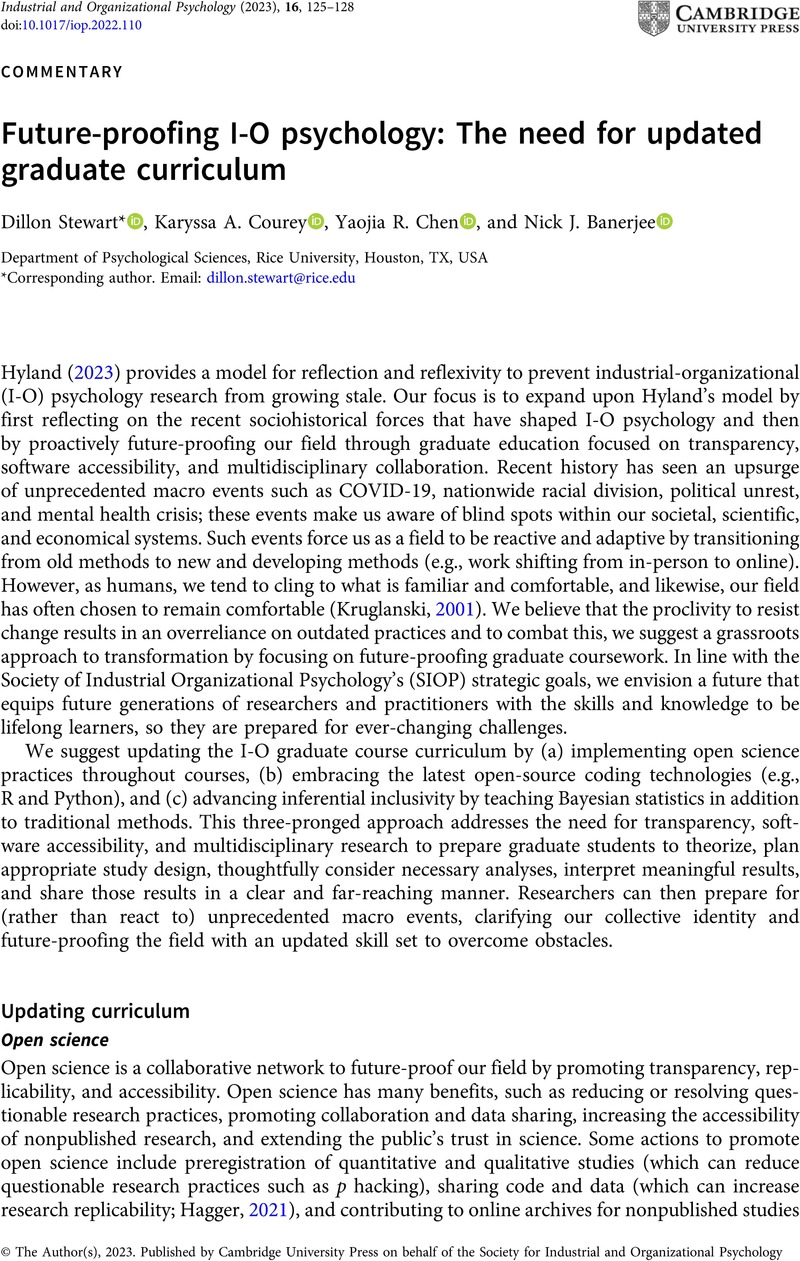Crossref Citations
This article has been cited by the following publications. This list is generated based on data provided by Crossref.
Lin, Mei‐Hua
Lim, Pek Kei
Azalea, Alia
and
Lee, Michelle Chin Chin
2024.
Factors affecting career motivation of recent graduates: Career adaptability as a mediator.
The Career Development Quarterly,
Vol. 72,
Issue. 4,
p.
276.



